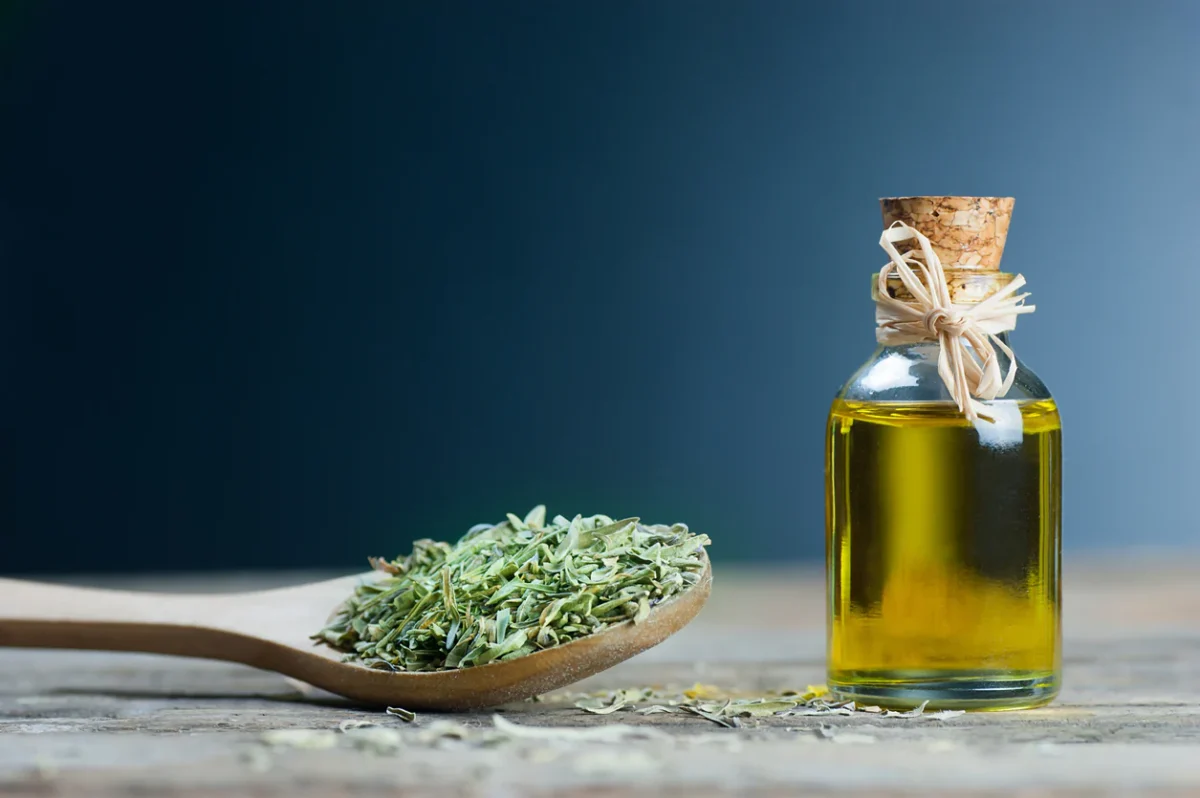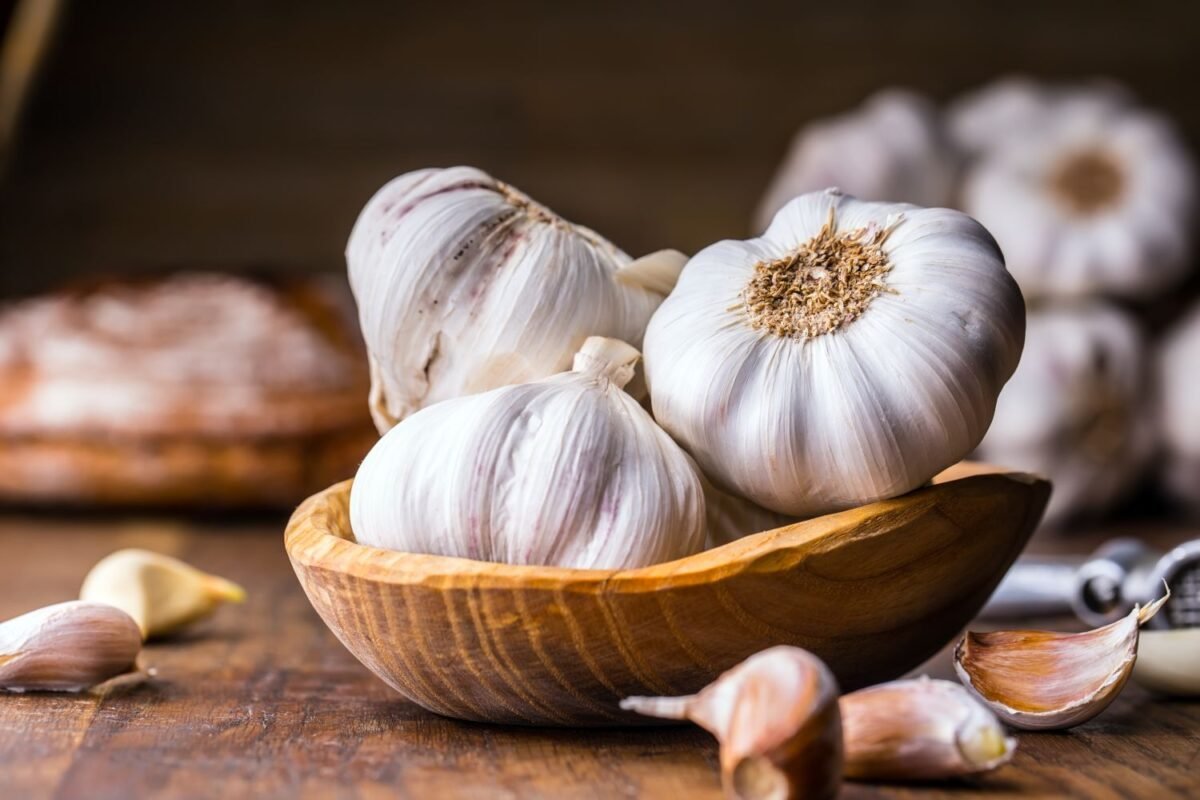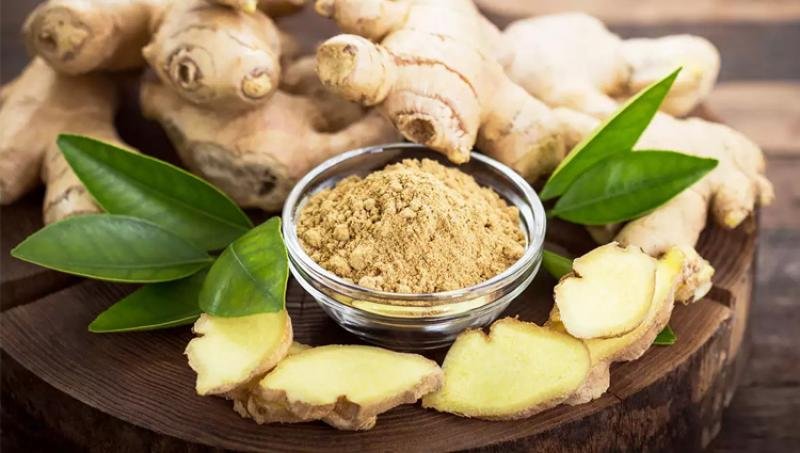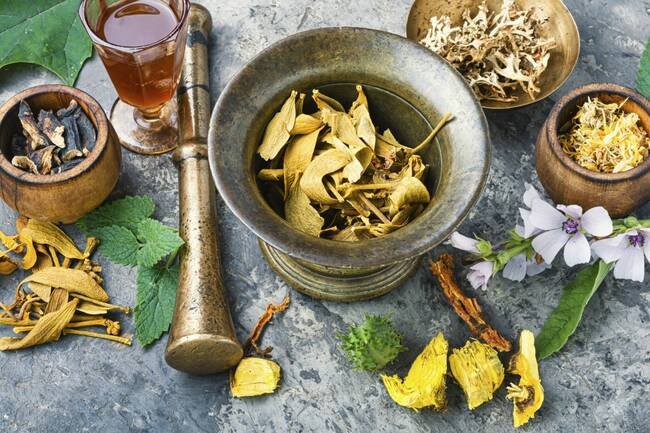Modern medicine has given us life-saving antibiotics, but overuse has led to antibiotic resistance, weakening their effectiveness. Fortunately, nature provides powerful herbal antibiotics that can help fight infections without the side effects of synthetic drugs. Many of these plant-based remedies have been used for centuries, offering antimicrobial, antifungal, and antiviral properties. Below, we explore the 20 most effective herbal antibiotics and how to use them safely and effectively.
1. Oregano Oil – The Ultimate Antimicrobial

Oregano oil is one of the most potent herbal antibiotics, packed with carvacrol and thymol—two compounds that exhibit strong antibacterial effects. Studies show that oregano oil can combat bacteria like E. coli, Salmonella, and Staphylococcus aureus.
To use oregano oil, dilute a few drops in a carrier oil like coconut or olive oil before applying it to the skin or taking it internally. It is especially effective for respiratory infections, gut health, and wound healing. However, it should not be used for extended periods without breaks.
Many people prefer oregano oil for fighting colds, sinus infections, and even foodborne illnesses. Always choose high-quality, food-grade oregano oil for internal use.
2. Garlic – Nature’s Most Trusted Antibiotic

Garlic contains allicin, a compound known for its broad-spectrum antimicrobial activity. It has been used for centuries to treat bacterial, viral, and fungal infections. Studies suggest that garlic can combat H. pylori (linked to ulcers) and antibiotic-resistant bacteria.
For best results, crush or chop fresh garlic and let it sit for a few minutes to activate the allicin. You can add raw garlic to meals or take garlic extract supplements. Some people even use garlic-infused honey as a natural antibiotic syrup.
Garlic also supports the immune system, making it an excellent preventative measure against colds and flu. However, excessive consumption may cause digestive discomfort in some individuals.
3. Echinacea – The Immune-Boosting Herb

Echinacea is widely used for its immune-enhancing properties. Research indicates that it can reduce the severity and duration of colds by stimulating white blood cell activity. Its antibacterial effects make it useful for wound healing and respiratory infections.
Echinacea is best consumed as a tea, tincture, or supplement. It can be taken at the first sign of infection to boost the immune response. Unlike pharmaceutical antibiotics, echinacea supports overall immune health rather than targeting bacteria alone.
However, it’s not recommended for individuals with autoimmune disorders, as it can overstimulate the immune system. Moderation is key to safe and effective use.
4. Ginger – A Natural Antibacterial and Anti-Inflammatory

Ginger has been valued for centuries as a natural remedy for infections and inflammation. Its antibacterial properties make it effective against foodborne pathogens and respiratory infections. Studies have also found that ginger can inhibit the growth of Staphylococcus aureus and Streptococcus pyogenes.
Fresh ginger tea, ginger capsules, or even ginger juice can help fight bacterial infections. It also soothes digestive issues, making it beneficial for gut health.
For respiratory infections, a mixture of ginger, honey, and lemon is a time-tested remedy that reduces congestion and promotes healing.
5. Turmeric – The Golden Healer
Turmeric, rich in curcumin, is a powerful anti-inflammatory and antimicrobial agent. It has been shown to fight bacteria like Helicobacter pylori and prevent infections in wounds and cuts.
A simple way to use turmeric is by making “golden milk”—a warm blend of turmeric, milk, black pepper, and honey. It can also be taken as a supplement or applied topically as a paste for wound healing.
Regular consumption of turmeric enhances immune function, reduces inflammation, and protects against bacterial overgrowth in the gut.
6. Manuka Honey – The Sweet Antibiotic
Manuka honey, native to New Zealand, is prized for its powerful antibacterial properties. Unlike regular honey, it contains methylglyoxal (MGO), which provides additional antimicrobial benefits.
Manuka honey is often used to treat wounds, sore throats, and digestive infections. A spoonful of raw Manuka honey can be taken daily to boost immunity and fight harmful bacteria.
For skin infections, applying Manuka honey directly to wounds promotes faster healing. Always choose high-grade, authentic Manuka honey with a high UMF rating for the best results.
7. Thyme – A Respiratory and Gut Healer
Thyme contains thymol, a potent antibacterial and antifungal compound. It has been traditionally used to treat respiratory infections, bronchitis, and digestive issues.
Thyme tea or essential oil (diluted) can be used for respiratory infections. The steam inhalation method—boiling thyme leaves and inhaling the vapor—can help clear sinuses and kill airborne bacteria.
For gut infections, thyme extract or tea aids digestion and prevents bacterial imbalances in the intestines.
8. Clove – A Potent Antibacterial for Oral Health
Clove oil is highly effective against oral bacteria and is commonly used in dentistry. Its active compound, eugenol, provides antibacterial, antifungal, and analgesic properties.
Clove oil is used for toothaches, gum infections, and digestive health. Simply chewing on a whole clove or using diluted clove oil can help eliminate harmful bacteria in the mouth.
It also works well against Candida infections, making it a natural remedy for fungal overgrowth.
9. Cinnamon – A Powerful Antimicrobial Spice
Cinnamon has strong antibacterial properties and is effective against E. coli, Listeria, and Salmonella. It also regulates blood sugar levels and supports digestion.
Adding cinnamon to meals, teas, or even taking cinnamon oil can help fight bacterial infections. It is particularly useful for preventing foodborne illnesses.
Its warming properties improve circulation, which can enhance the body’s natural immune response.
10. Goldenseal – A Traditional Herbal Antibiotic
Goldenseal contains berberine, a compound known for its antimicrobial properties. It is often used for respiratory infections, digestive issues, and eye infections.
Goldenseal tea, tinctures, or capsules are effective ways to consume this herb. It is best used for short periods, as prolonged use can disrupt gut flora.
It works synergistically with echinacea, enhancing immune support and infection resistance.
11. Pau d’Arco – The Anti-Fungal Powerhouse
Pau d’Arco is a bark extract from South American trees, traditionally used for its antifungal and antimicrobial properties. It is particularly effective against Candida overgrowth, making it a popular remedy for yeast infections and gut imbalances.
This herbal antibiotic works by inhibiting the growth of fungi and harmful bacteria while promoting a balanced microbiome. Many people take Pau d’Arco tea or supplements to support their immune system and fight stubborn infections.
For best results, it’s recommended to consume Pau d’Arco tea regularly, especially when dealing with fungal infections. However, it should be used in moderation, as excessive intake can cause digestive discomfort.
12. Neem – The Ayurvedic Antibiotic
Neem has been used in Ayurvedic medicine for centuries due to its antibacterial, antiviral, and antifungal properties. It is widely used for skin infections, dental health, and even internal detoxification.
Neem leaves and oil are particularly effective for treating bacterial skin conditions, such as acne, eczema, and wounds. It is also a common ingredient in natural toothpaste and mouthwashes, as it helps eliminate oral bacteria.
For internal use, neem tea or supplements can help fight gut infections and strengthen the immune system. However, neem oil should never be consumed directly, as it can be toxic in large amounts.
13. Coconut Oil – A Natural Antiviral and Antibacterial
Coconut oil contains lauric acid, which has powerful antimicrobial properties. It is effective against bacteria, viruses, and fungi, making it a versatile natural remedy.
Many people use coconut oil for oil pulling—a technique that improves oral health by eliminating harmful bacteria in the mouth. It can also be applied topically to wounds and infections for its antibacterial benefits.
Internally, consuming a tablespoon of extra virgin coconut oil daily may support gut health and boost immunity. Its ability to fight Candida and other harmful microbes makes it a popular choice for maintaining a balanced microbiome.
14. Olive Leaf Extract – A Potent Immune Booster
Olive leaf extract is known for its ability to fight bacterial and viral infections. It contains oleuropein, a compound that has strong antimicrobial effects against harmful pathogens.
This herbal antibiotic is commonly used to prevent colds, flu, and respiratory infections. Many people take olive leaf extract in supplement form to support immune function during the colder months.
Studies suggest that olive leaf extract can also help lower inflammation and promote cardiovascular health, making it a well-rounded natural remedy.
15. Basil – More Than Just a Culinary Herb
Basil, especially holy basil (tulsi), has strong antibacterial and adaptogenic properties. It is widely used in Ayurvedic medicine for respiratory infections, stress relief, and immune support.
Drinking basil tea or adding fresh basil leaves to meals can help fight infections and promote overall well-being. The essential oils in basil have antimicrobial properties that make it effective against foodborne bacteria.
Holy basil is particularly beneficial for respiratory health, as it helps clear mucus and soothe throat infections. It is often used in herbal teas or taken as a supplement.
16. Lemongrass – A Natural Infection Fighter
Lemongrass is a fragrant herb with powerful antibacterial and antifungal properties. It has been traditionally used to treat digestive issues, fevers, and respiratory infections.
Lemongrass tea is a popular way to consume this herbal antibiotic, as it helps cleanse the body and fight off harmful bacteria. The essential oil is also used in aromatherapy to boost immunity and reduce stress.
For skin infections, diluted lemongrass oil can be applied topically to kill bacteria and promote healing. Its refreshing scent also makes it a great addition to natural cleaning products.
17. Sage – A Traditional Remedy for Throat Infections
Sage is well-known for its antibacterial and anti-inflammatory properties, making it an excellent herbal remedy for sore throats, mouth infections, and digestive issues.
Gargling with sage tea or using sage-infused mouthwash can help soothe throat infections and kill harmful bacteria in the mouth. It is also effective in reducing gum inflammation and preventing bad breath.
In addition to its antibacterial effects, sage supports brain health and may improve memory and cognitive function. This makes it a valuable herb for both infection prevention and overall well-being.
18. Rosemary – A Gut and Respiratory Healer
Rosemary is more than just a flavorful herb—it has potent antimicrobial and anti-inflammatory properties. It has been traditionally used to improve digestion and treat respiratory infections.
Drinking rosemary tea or adding fresh rosemary to meals can support gut health by reducing harmful bacteria and promoting digestion. Its essential oils are also effective in clearing nasal congestion and relieving cold symptoms.
Rosemary extract has shown promise in fighting antibiotic-resistant bacteria, making it a valuable natural remedy in an era of rising antibiotic resistance.
19. Chamomile – A Gentle Yet Effective Herbal Antibiotic
Chamomile is best known for its calming effects, but it also has antimicrobial properties that make it useful for treating infections. It has been used for centuries to heal wounds, soothe digestive issues, and fight bacteria.
Chamomile tea is an excellent way to consume this herb, as it helps reduce inflammation and support the immune system. It can also be used as a skin wash to treat minor infections and irritations.
Because of its mild nature, chamomile is safe for most people, including children and pregnant women. It’s a great herbal antibiotic for those looking for a gentle, natural remedy.
20. Aloe Vera – A Soothing Antibacterial Agent
Aloe vera is widely known for its skin-healing properties, but it also has antibacterial and antiviral effects. It is commonly used to treat wounds, burns, and skin infections.
Applying fresh aloe vera gel to cuts, burns, or acne-prone skin helps speed up healing while preventing bacterial growth. It can also be taken internally in small amounts to support gut health and reduce inflammation.
Aloe vera juice is sometimes used to soothe digestive issues, including acid reflux and stomach ulcers. However, it should be consumed in moderation, as excessive intake may cause digestive discomfort.
Conclusion – Harnessing the Power of Herbal Antibiotics
Herbal antibiotics offer a natural way to fight infections and support immune health. Unlike synthetic antibiotics, they often come with additional benefits, such as reducing inflammation and promoting overall well-being. However, it’s important to use them correctly—some herbs should only be taken for short periods, while others work best when combined with lifestyle changes.
Incorporating these powerful herbs into your routine can help prevent infections, speed up recovery, and maintain long-term health. Always consult with a healthcare professional before starting any herbal regimen, especially if you have underlying health conditions or are taking medications.
Nature has provided us with a wealth of healing plants—using them wisely can be a game-changer in natural health and wellness.









